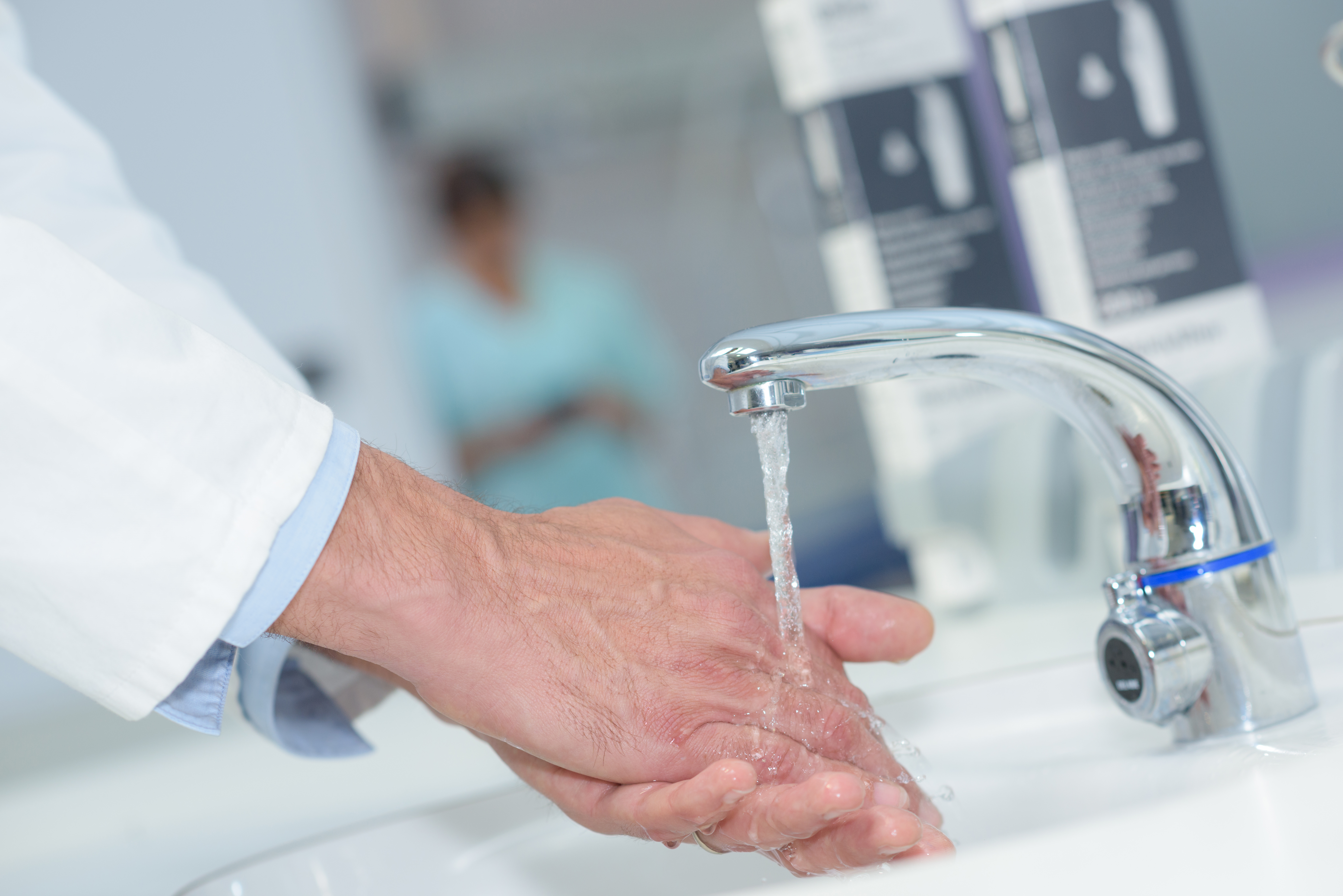The COVID-19 Pandemic, caused by the SARS-COV-2 virus, has swept across the world, killed tens of thousands, and infected many more. While many national governments have already issued mandated quarantines to ease the pressure on healthcare providers, people are still frantically lining up at supermarkets. They continue to push and shove in order to hoard toilet paper, hand sanitizer, and other hygienic items. However, the humble soap bar and soap dispensers are still in stock.
While many health organizations, such as the CDC, recommend thoroughly sanitizing one’s hands to prevent the novel coronavirus from spreading, one must beg the question: is hand washing better, or is hand sanitizer more effective?
Hand sanitizer, the ever so-prized commodity in this pandemic era, works by using concentrations of alcohol to kill the microbial organisms on our hands. Most hand sanitizers also have additives for fragrance (pure alcohol smells horrible), ease of use, and prevention of abuse. The alcohol is the most important agent in neutralizing the deadly bacteria and viruses that may harm our immune systems: it denatures the proteins and membranes of microbes to prevent replication and motility. In other words, the alcohol breaks down the DNA and/or RNA in bacteria and viruses to render them harmless. Most hand sanitizers also advertise up to 99% effectiveness or more, in order to assure customers of its potency.
Hand washing, on the other hand, utilizes more rudimentary concepts to keep our hands clean. Because soaps are made up of hydrophobic bonds (adhesivity that avoids water), lathering and covering our hands with soaps allows microbes to be detached from our skin cells. This includes droplets that may contain the novel coronavirus. Rinsing with water, all the detached microbes will then flow down the sink. Then, we can proceed to dry our hands with a towel or with a blow-dryer.
Cleaning our hands, either with soap and water or hand sanitizer, helps prevent whatever pathogens we may have touched come into contact with our face. Our face is home to orifices important to survival, such as our eyes, nose, and mouth: these locations are prime targets for pathogens to enter our body and cause irreversible harm.
Under fluorescent ultraviolet light, proper handwashing with soap and water is often shown to be more effective than hand sanitizer, assuming proper and thorough technique is implemented: washing the palms, knuckles, and fingernails; washing for at least 20 seconds; and scrubbing gaps between fingers. The public should be more focused on proper handwashing while in quarantine rather than stockpiling hand sanitizer from those who need it the most.
Since it is quite effective, utilizing soap and water, when available, is the ideal option for keeping our hands clean. Hand sanitizer should only be used when there is a lack of running water, such as while on the road. After all, this is the reason why surgeons and nurses, before entering an operating room, wash their hands with soap and water thoroughly instead of simply using hand sanitizer.
When preparing for the COVID-19 outbreak, let’s not wait in crowded stores all for a box of hand sanitizer. The more time you spend outside, the higher chance you risk contracting an infection. Wash and rinse your hands with soap and water to prevent contracting and spreading the disease, and avoid unnecessary contact with your face to ensure the best hygienic practices.
Feature Image Source: © auremar / Adobe Stock










